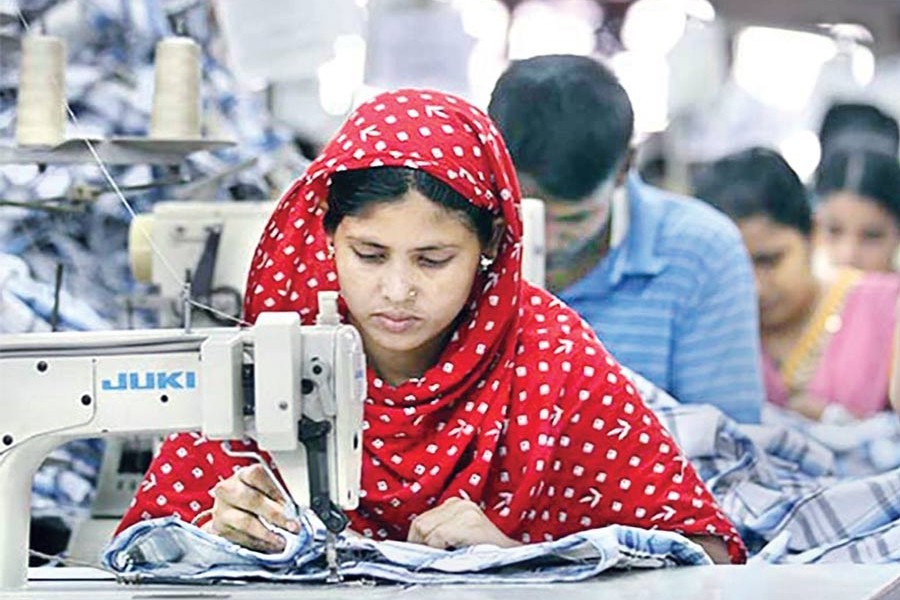Apparel sector leaders have teamed up to set a unified code of conduct, as multiple audits cost them a huge money and time as well as create audit fatigue - making compliance difficult for enterprises.
So, demands for converging the protocols to audit garment factories have also been growing in the industry, according to sector insiders.
To address the issue, the Bangladesh Garment Manufacturers and Exporters Association (BGMEA) and the Bangladesh Knitwear Manufacturers and Exporters Association (BKMEA) formed a joint committee in this regard on Sunday.
When asked, BKMEA Executive President Mohammad Hatem said a RMG factory needs to go through dozens of social and compliance audits annually, and each audit costs at least 2,000 dollar or euro.
"Individual buyers and retailers have their own requirements for audits, while factories need a wide range of certificates - including ISO, SEDEX, WRAP, Oeko-Tex and GOATS," he opined.
BGMEA President Faruque Hassan told the FE, "We have been talking for a unified code of conduct for many years. Local manufacturers have to conduct various audits, complying with a wide range of requirements - as prescribed by buyers."
"As a result, these create audit fatigue, increase cost, and take much time," he said, adding that unfortunately the issue is yet to resolve although many years have passed.
Against such a backdrop, both the trade-bodies sat together and formed an 11-member committee that would work on a unified code of conduct for RMG industry, they said.
The committee will carry out thorough assessment of feasibility of a common code of conduct for social audits, including national laws, rules, and policies as well as international conventions such as UNGP along with buyers' code of conduct and third-party audit protocols, Mr Hatem noted.
The committee will take cognizance of the local context while adhering to local and international principles with utmost consideration. It will also engage with international stakeholders, including brands, trade associations, academia and social partners, to formulate a feasible path to end the audit fatigue, he added.
Meantime, a recent study revealed that audit harmonisation can help garment suppliers save thousands of dollars as well as drive key investments in working conditions, new technologies, and social and labour standards.
The suppliers, whose customers accept standardised rather than buyer-specific factory audits, are reporting significant savings, according to early analysis of the findings, revealed on September 22, from the Better Buying Purchasing Practices Index 2021.
About 85.4 per cent of suppliers, who rated purchasing practices of their customers in relation to win-win sustainable partnerships as part of the Better Buying 2021 ratings cycle, reported that their customers are now accepting existing audits or assessments of factory working conditions in lieu of asking for new audits, specifically for themselves.
Some 20.3 per cent reported that their buyers had specifically adopted Social Labour Convergence Programme's Converged Assessment Framework (CAF), a tool designed to combat audit fatigue and duplication by providing suppliers with one set of factual and verified data on social and labour conditions in their factories.
This sub-set of suppliers reported savings of thousands of dollars, in some cases as high as US$20,000 a year, which was typically being reinvested in workplace improvements, new technologies, improved social protections for workers, and community programmes, according to the initial findings.
A total of 736 suppliers from 52 countries participated in the survey. Some 50 per cent of the suppliers, participating in the survey, were from China, Hong Kong, the US, and Taiwan, while 4.1 per cent participated from Bangladesh.
Better Buying Institute will publish a Deep Dive Report on audit harmonisation, and win-win sustainable partnerships between buyers and suppliers in early 2022, according to a statement.
Dr Marsha Dickson, President and Co-Founder of Better Buying Institute, in a statement said, "These emerging insights reinforce the value of audit harmonisation, and of tracking its impact on suppliers and workers year-on-year, via Better Buying's authentic and independent data."
"They also reveal the appetite among suppliers for driving change, innovation and improvement, and the impact they can make when they have the financial resources to do so," she added.
Janet Mensink, Executive Director of Social and Labour Convergence Program (SLCP), said, "These initial findings by Better Buying Institute show that SLCP's vision of redeploying resources from auditing to improving working conditions is becoming a reality for many suppliers."
SLCP's CAF also benefits the brands and retailers working with these suppliers - not only by saving their time and money, but also by providing a high-quality and rich data set that is compatible with existing standards, she noted.


